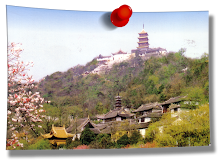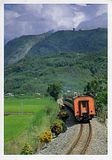Portugal, officially the Portuguese Republic (Portuguese: República Portuguesa), is a country on the Iberian Peninsula. Located in southwestern Europe, Portugal is the westernmost country of mainland Europe and is bordered by the Atlantic Ocean to the west and south and by Spain to the north and east. The Atlantic archipelagos of the Azores and Madeira are also part of Portugal.
The land within the borders of today's Portuguese Republic has been continuously settled since prehistoric times. Some of the earliest civilizations include Lusitanians and Celtic societies. Incorporation into the Roman Republic dominions took place in the 2nd century BC. The region was ruled and colonized by Germanic peoples, such as the Suebi and the Visigoths, from the 5th to the 8th century. From this era, some vestiges of the Alans were also found. The Muslim Moors arrived in the early 8th century and conquered the Christian Germanic kingdoms, eventually occupying most of the Iberian Peninsula. In the early 1100s, during the Christian Reconquista, Portugal appeared as a kingdom independent of its neighbour, the Kingdom of León and Galicia. In a little over a century, in 1249, Portugal would establish almost its entire modern-day borders by conquering territory from the Moors.
During the 15th and 16th centuries, with a global empire that included possessions in Africa, Asia, and South America, Portugal was one of the world's major economic, political, and cultural powers. In the 17th century, the Portuguese Restoration War between Portugal and Spain ended the sixty year period of the Iberian Union (1580–1640). The 1755 Lisbon earthquake and, in the 19th century, armed conflicts with French and Spanish invading forces and the loss of its largest territorial possession abroad, Brazil, disrupted political stability and potential economic growth. After the Portuguese Colonial War and the Carnation Revolution coup d'état in 1974, the ruling regime was deposed in Lisbon and the country handed over its last overseas provinces in Africa. Portugal's last overseas territory, Macau, was handed over to China in 1999.
Portugal is a developed country, and has a high Human Development Index. It is the 7th most peaceful and the 13th most globalized country in the world, and has the world's 19th highest quality of life, although having the lowest GDP per capita of Western European countries. It is a member of the European Union (joined the then EEC in 1986, leaving the EFTA where it was a founding member in 1960) and the United Nations (since 1955); as well as a founding member of the Latin Union, the Organization of Ibero-American States, the Organisation for Economic Co-operation and Development (OECD), North Atlantic Treaty Organization (NATO), Comunidade dos Países de Língua Portuguesa (Community of Portuguese Language Countries, CPLP), and the European Union's Eurozone. Portugal is also a Schengen state.
The land within the borders of today's Portuguese Republic has been continuously settled since prehistoric times. Some of the earliest civilizations include Lusitanians and Celtic societies. Incorporation into the Roman Republic dominions took place in the 2nd century BC. The region was ruled and colonized by Germanic peoples, such as the Suebi and the Visigoths, from the 5th to the 8th century. From this era, some vestiges of the Alans were also found. The Muslim Moors arrived in the early 8th century and conquered the Christian Germanic kingdoms, eventually occupying most of the Iberian Peninsula. In the early 1100s, during the Christian Reconquista, Portugal appeared as a kingdom independent of its neighbour, the Kingdom of León and Galicia. In a little over a century, in 1249, Portugal would establish almost its entire modern-day borders by conquering territory from the Moors.
During the 15th and 16th centuries, with a global empire that included possessions in Africa, Asia, and South America, Portugal was one of the world's major economic, political, and cultural powers. In the 17th century, the Portuguese Restoration War between Portugal and Spain ended the sixty year period of the Iberian Union (1580–1640). The 1755 Lisbon earthquake and, in the 19th century, armed conflicts with French and Spanish invading forces and the loss of its largest territorial possession abroad, Brazil, disrupted political stability and potential economic growth. After the Portuguese Colonial War and the Carnation Revolution coup d'état in 1974, the ruling regime was deposed in Lisbon and the country handed over its last overseas provinces in Africa. Portugal's last overseas territory, Macau, was handed over to China in 1999.
Portugal is a developed country, and has a high Human Development Index. It is the 7th most peaceful and the 13th most globalized country in the world, and has the world's 19th highest quality of life, although having the lowest GDP per capita of Western European countries. It is a member of the European Union (joined the then EEC in 1986, leaving the EFTA where it was a founding member in 1960) and the United Nations (since 1955); as well as a founding member of the Latin Union, the Organization of Ibero-American States, the Organisation for Economic Co-operation and Development (OECD), North Atlantic Treaty Organization (NATO), Comunidade dos Países de Língua Portuguesa (Community of Portuguese Language Countries, CPLP), and the European Union's Eurozone. Portugal is also a Schengen state.

































No comments:
Post a Comment